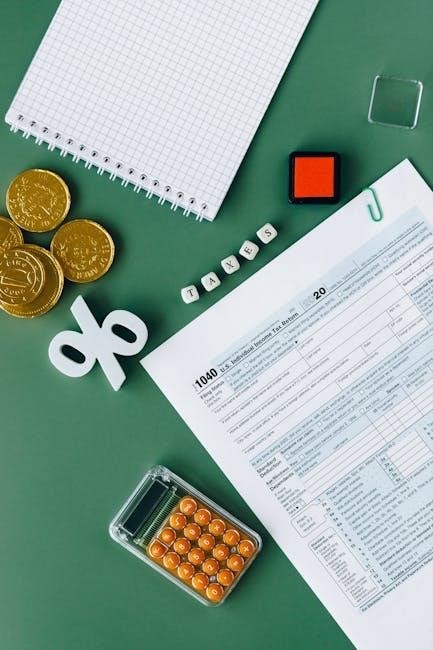year 9 chemistry test papers with answers pdf
Importance of Year 9 Chemistry Test Papers with Answers PDF
Year 9 chemistry test papers with answers PDF are essential resources for students to grasp key concepts, improve exam techniques, and build confidence. They provide a clear understanding of the curriculum, help identify weak areas, and offer practical experience with exam-style questions, ensuring better preparation and improved performance.
Understanding the Curriculum Requirements

Year 9 chemistry test papers with answers PDF are designed to align with the curriculum, ensuring students grasp foundational concepts. These resources cover key topics such as atomic structure, chemical reactions, and stoichiometry, reflecting exam syllabus requirements. By practicing with these papers, students gain clarity on what is expected in assessments. The questions are structured to test understanding of core areas like the periodic table, chemical bonding, and energy changes. Additionally, these papers help students familiarize themselves with the format and content of actual exams, making them invaluable for targeted revision and understanding curriculum expectations effectively.
- Focuses on core concepts like atomic structure and chemical reactions.
- Aligns with the curriculum to meet exam requirements.
- Helps students understand the periodic table and chemical changes.
Benefits of Practicing with Past Papers
Practicing with Year 9 chemistry test papers with answers PDF offers numerous benefits for students. These resources help improve familiarity with exam formats, reducing anxiety and building confidence. By solving past papers, students can identify weak areas and focus their revision efforts effectively. Regular practice enhances time management skills, allowing students to complete tests within the allotted time. Additionally, past papers provide exposure to various question types, such as multiple-choice and extended-response questions, preparing students for the actual exam. The inclusion of answers enables self-assessment, promoting a deeper understanding of concepts and improving problem-solving abilities. Consistent practice with these papers fosters a sense of preparedness and readiness for the final assessment.
- Improves exam readiness and confidence.
- Enhances time management and problem-solving skills.
- Provides insight into exam question formats and patterns.

Key Topics Covered in Year 9 Chemistry Test Papers
Year 9 Chemistry test papers cover fundamental topics such as atomic structure, chemical reactions, stoichiometry, energy changes, and the periodic table, essential for building a strong foundation.
- Atomic Structure and the Periodic Table
- Chemical Reactions and Stoichiometry
- Energy Changes in Chemical Reactions
Atomic Structure and the Periodic Table
Atomic structure and the periodic table are foundational topics in Year 9 Chemistry. Test papers often include questions on identifying subatomic particles, understanding electron configurations, and recognizing periodic trends. Students are also assessed on their ability to interpret the periodic table, determine atomic numbers, and explain how elements are organized by their properties. These questions help reinforce key concepts such as the structure of atoms, isotopes, and the relationship between atomic structure and chemical behavior. Additionally, past papers provide opportunities to practice calculations involving atomic masses and molar masses, ensuring a solid grasp of these essential skills. Mastering these areas is crucial for understanding more complex chemistry topics in higher grades.
Chemical Reactions and Stoichiometry
Chemical reactions and stoichiometry are critical areas covered in Year 9 Chemistry test papers. These questions focus on balancing chemical equations, calculating molar ratios, and determining reactant and product amounts. Students practice identifying types of reactions, such as synthesis and decomposition, and learn to apply conservation of mass. Stoichiometry problems often involve calculating moles, masses, and volumes, reinforcing mathematical skills in a chemical context. Additionally, test papers include questions on predicting products and writing balanced equations, helping students understand chemical processes and their quantitative aspects. Regular practice with these problems ensures a strong foundation for advanced chemistry topics and develops problem-solving abilities essential for exams.
Energy Changes in Chemical Reactions
Energy changes in chemical reactions are a fundamental concept in Year 9 Chemistry. Test papers include questions on exothermic and endothermic reactions, energy transfer, and the role of catalysts. Students analyze reaction profiles, calculate enthalpy changes, and explain energy transformations. Practical examples, such as combustion reactions, are used to illustrate energy release or absorption. Additionally, questions cover the laws of thermodynamics and their relevance to predicting reaction spontaneity. These exercises help students understand how energy drives chemical processes and apply this knowledge to real-world scenarios, enhancing their ability to predict and explain reaction outcomes effectively.

Structure of Year 9 Chemistry Test Papers
Year 9 Chemistry test papers are divided into three sections: multiple-choice questions, short-answer questions, and extended-response questions, assessing knowledge, application, and critical thinking skills comprehensively.
Section I: Multiple-Choice Questions
Section I of Year 9 Chemistry test papers consists of multiple-choice questions designed to assess foundational knowledge and understanding. Typically containing 15 questions, this section evaluates students’ ability to recall key concepts, definitions, and basic principles. The questions are straightforward, requiring students to select the correct answer from a set of options. This format helps students develop quick thinking and time management skills, as they must answer accurately within a limited timeframe. The multiple-choice section covers a wide range of topics, from atomic structure to chemical reactions, ensuring a broad understanding of the curriculum. By practicing these questions, students can identify areas where they need improvement and refine their exam strategies effectively.
Section II: Short-Answer Questions
Section II of Year 9 Chemistry test papers comprises short-answer questions, designed to evaluate students’ ability to provide concise yet detailed responses. These questions typically cover a range of topics, from chemical reactions to the periodic table, and require students to demonstrate a deeper understanding of concepts. The short-answer format allows students to explain processes, write balanced equations, or describe structures in their own words. This section helps improve critical thinking and the ability to articulate scientific ideas clearly. Practice with these questions enables students to refine their writing skills and ensure accuracy in their explanations. By mastering this section, students build confidence in conveying their knowledge effectively during exams.
Section III: Extended-Response Questions
Section III of Year 9 Chemistry test papers focuses on extended-response questions, requiring students to provide detailed, analytical answers. These questions assess a student’s ability to synthesize information, evaluate data, and explain complex concepts thoroughly. They often involve multi-step problems, such as analyzing chemical reactions, calculating stoichiometric ratios, or explaining energy changes in reactions. This section tests critical thinking, problem-solving skills, and the ability to articulate scientific concepts clearly and accurately. Practicing extended-response questions helps students develop their analytical abilities and time management during exams. Reviewing answers from past papers allows students to understand marking schemes and improve their performance by addressing common misconceptions and gaps in understanding.

Preparing for Year 9 Chemistry Exams
Effective preparation involves regular practice with past papers, focusing on weak areas, and mastering key concepts. Utilize study guides and interactive resources to enhance understanding and problem-solving skills, ensuring confidence and readiness for the exam.
Effective Study Techniques
Effective study techniques for Year 9 chemistry involve a structured approach to learning. Start by breaking down complex topics into manageable chunks, focusing on understanding rather than memorization. Regular practice with past papers helps familiarize students with exam formats and question types. Dedicate time to review mistakes, ensuring comprehension of underlying concepts. Utilize active learning methods, such as creating flashcards or concept maps, to reinforce key ideas. Time management is crucial; allocate specific periods for studying, practicing, and revising. Additionally, engage with interactive resources like worksheets and PDF materials to deepen understanding. Consistent review and application of knowledge build confidence and improve problem-solving skills, essential for excelling in chemistry exams.
Time Management During the Test
Effective time management during Year 9 chemistry exams is vital for achieving optimal results. Allocate time evenly across all sections, ensuring each question type receives adequate attention. For multiple-choice questions, quickly identify confident answers and skip challenging ones initially. Short-answer questions require concise, clear responses, while extended-response questions demand detailed explanations. Practice past papers under timed conditions to refine pacing skills. Avoid spending too long on a single question; instead, move forward and return if time permits. Reviewing answers at the end ensures accuracy and catches potential errors. By managing time wisely, students can fully demonstrate their knowledge and perform to their best ability, minimizing stress and maximizing scores.

Resources for Year 9 Chemistry Revision
Access past papers, mark schemes, and interactive worksheets in PDF format to enhance revision. These resources provide practice questions, detailed explanations, and practical exercises to reinforce learning and improve exam readiness.
Accessing Past Papers and Mark Schemes
Accessing past papers and mark schemes is crucial for effective revision. Websites offer downloadable PDFs of Year 9 chemistry test papers, including Cambridge IGCSE and AQA GCSE resources. These materials provide authentic exam questions, allowing students to practice under timed conditions. Mark schemes are equally valuable, offering detailed explanations for correct answers and common misconceptions. Students can identify areas for improvement by comparing their responses with the provided solutions. Regular practice with past papers enhances familiarity with exam formats and question types, boosting confidence and performance. Additionally, many schools and educational platforms provide curated collections of past papers, ensuring easy access for students. Utilizing these resources systematically is key to achieving exam success.
Utilizing Interactive Worksheets and PDF Materials
Interactive worksheets and PDF materials are invaluable tools for Year 9 chemistry revision. These resources provide engaging activities, such as fillable fields and interactive diagrams, to enhance student participation. PDF materials, including practice tests and past papers, are easily accessible and printable, allowing students to work offline. Many educational platforms offer comprehensive collections of worksheets tailored to specific topics, like atomic structure and chemical reactions. These materials often include answers, enabling self-assessment and identification of areas needing improvement. Interactive elements, such as clickable quizzes and animations, make learning more dynamic and fun. By combining these tools with traditional study methods, students can achieve a deeper understanding of chemistry concepts and improve their problem-solving skills effectively.

Common Challenges in Year 9 Chemistry
Year 9 chemistry students often struggle with understanding atomic structure, chemical reactions, and stoichiometry. They also face challenges with time management and interpreting exam questions effectively.
Understanding Chemical Formulas and Equations
One of the most significant challenges for Year 9 chemistry students is mastering chemical formulas and equations. Many students struggle to interpret chemical symbols, balance equations, and understand the differences between empirical, molecular, and structural formulas. Practicing with test papers helps students identify these weaknesses and improve their skills. For example, questions on chemical reactions require students to write balanced equations, reinforcing their understanding of stoichiometry and atomic interactions. Additionally, test papers often include problems involving the periodic table, such as determining the number of neutrons in an atom or identifying ions. By consistently practicing these types of questions, students can develop a stronger grasp of chemical nomenclature and reaction mechanisms, which are critical for success in chemistry exams. Regular review of past papers also builds confidence in applying these concepts to unfamiliar problems, a key skill for achieving high marks in assessments.
Mastering Practical Skills and Data Analysis
Year 9 chemistry test papers with answers PDF play a crucial role in helping students develop practical skills and data analysis abilities. These resources often include questions that simulate laboratory scenarios, requiring students to interpret experimental data, calculate results, and draw conclusions. For instance, test papers may ask students to analyze graphs, evaluate the results of chemical reactions, or determine the accuracy of measurements. Additionally, many past papers include questions on experimental design, enabling students to understand how to plan and execute scientific investigations effectively. By practicing these types of problems, students improve their ability to collect, process, and present data, which are essential skills for success in chemistry. Regular exposure to such questions also enhances their understanding of scientific methodology and data interpretation, preparing them for more advanced practical tasks in higher grades.

